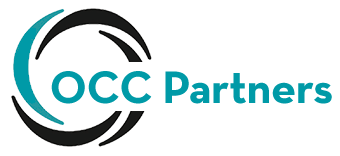Ten Important Lessons I Learned in My Job Searches
For 20 years I’ve been in the job market, either in a job or in a job search, and 15 of those years I’ve been recruiting all levels of professional talent for multiple companies in various cities and countries. Through all of it, I’ve learned some important lessons that I’d like to share.
1. Network now and forever.
 If you’re not doing it already, start immediately. Networking should be an integral part of your career, and is critical when you’re in a job search.
If you’re not doing it already, start immediately. Networking should be an integral part of your career, and is critical when you’re in a job search.
Periodically connect with your existing professional contacts, whether it’s getting together or just passing along a relevant article to them, but stay in touch.
Extend your network regularly. Every time you attend a conference or off-site business meeting, make a point of connecting with someone. And, consider asking your current network to connect you with other contacts they value.
Extend yourself to those within your network by offering to help, introduce them to other contacts or act as a mentor to a junior professional.
When you ask someone in your network for assistance or to connect you to a hiring manager, be specific and thoughtful in your ‘ask’. For example, if you’re in the job market, and interested in a specific role, be prepared by providing your resume, as well as an outline of your strengths and accomplishments that match the requirements of the role you’re interested in.
2. Update your LinkedIn profile.
Make sure your LinkedIn profile is engaging and professional. Don’t just drop your resume into your LinkedIn profile. Your profile should be more distinctive and include the highlights of your career. Create a headline that speaks to what you’re passionate about in the business world. Hiring managers and recruiters are constantly using LinkedIn, so a strong headline can get you noticed.
If you want to minimize age bias, abbreviate your experience, including only the last past 10 to 15 years.
3. Have an elevator pitch ready.
 When you least expect it, you’ll be asked what you do or what you want to do. Be ready and be concise, zero in on what you do and what you want to do. Your story should take less than thirty seconds to tell.
When you least expect it, you’ll be asked what you do or what you want to do. Be ready and be concise, zero in on what you do and what you want to do. Your story should take less than thirty seconds to tell.
Always have your elevator pitch ready, not just when you’re making a job change, but all the time, because opportunities can arise when you least expect them.
4. Regularly update your resume.
Annually, it’s a good idea to update your resume, even if you don’t need it. That insures when you do need it, you’ll be ready to go.
I’ve met leaders and senior professionals who recommend you keep a record of your accomplishments and update your record at least annually. It’s a great idea and good practice to get into.
5. Be prepared to discuss salary during a job hunt.
It may seem radical that when you’re in the job search, you get asked about your salary during your first conversation with a company, but it happens frequently. The reason why? Companies don’t want to spend valuable time with candidates who aren’t likely to fit their role. And, from your perspective, there’s nothing worse than spending 8-10 hours interviewing, and then receiving an offer that $10k to $25k below what you’d consider. You’ve just wasted valuable time and energy that could have been spent on a stronger role. So, while it feels intrusive, discussing desired and/or actual salary insures you and the company are focused on a role that matches what you’re interested in.
If you’re asked for a specific number and you’re not comfortable providing one, consider providing a range. If you want to be flexible about compensation, add that you’re flexible when you reveal your salary. And, tell the hiring manager or recruiter why you’re willing to be flexible, so it doesn’t appear to be desperation. Many individuals are flexible in their compensation requirements for reasons such as a better location, work/life balance, because they feel they’re over the current market salary or they may be transitioning their career.
6. Be organized.
 Job search should be viewed as a project, and potentially the most important project you work on at any point in time. Like all good project managers, develop a plan and schedule, work the plan, and stay on target. Good project management skills will keep you organized when you’re juggling multiple interviews and roles, and interviewing with several companies.
Job search should be viewed as a project, and potentially the most important project you work on at any point in time. Like all good project managers, develop a plan and schedule, work the plan, and stay on target. Good project management skills will keep you organized when you’re juggling multiple interviews and roles, and interviewing with several companies.
7. Set aggressive goals each week.
Since most of your work will be meeting people or applying online, set goals for both, applications and networking. And, make your job search your number one priority every day. When you’re in a job search, you should spend 6 hours/day minimum on your job search, like your standard work day, whether it’s time spent networking, in meetings, resume submissions or research.
8. Contact and confirm your references.
Don’t include references on your resume or when you apply for a role, but do connect with your professional references early on in a job search. You should gather a list of at least 3-5 references and use only 3 of the most appropriate when you’re asked for them after an interview(s). Most companies want a reference from someone who supervised you, a peer, and one other person who knows you professionally. If this is your first role after your education, then teachers and professors can be used as they will speak to your work ethic. And, stay in touch with your references regularly.
When you get asked for the names and contact information for your references, reach out to the ones most appropriate for the role, and provide them information about what you’ve learned about the role, reiterate strengths that are important for the position, and thank them in advance for the recommendation.
Once they’ve provided a positive reference, and you’ve accepted the offer, circle back with your references, advise them of the role you just accepted, and thank them again.
9. Stay positive.

Job search, whether your currently employed or not, can be exhausting and discouraging. It’s critical that you stay positive. When the going gets tough, reach out to motivators in your network for support and fresh ideas. And, even if it’s difficult to hear, take the advice they give. Sometimes, we can become too siloed in our thinking when it’s about our career or salary. After all, it’s highly personal and often fundamental to how we define ourselves.
10. Pay it forward.
Do what you can to help a colleague, friend, or connection whenever you can. Help others through introductions, or mentoring more junior colleagues. And, if someone seeks your advice, be generous in providing it. Never forget that someone else is today in the same situation you were at one point and may be again.









